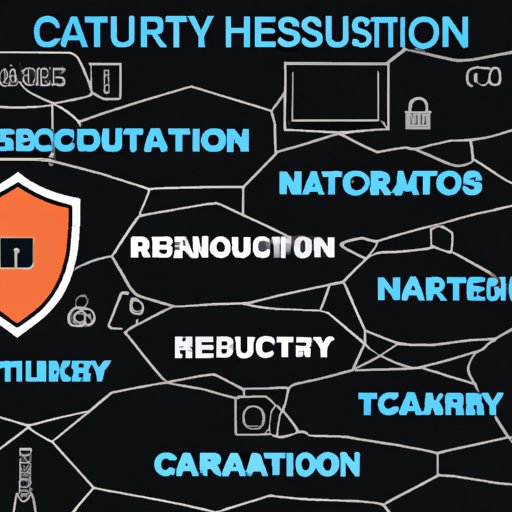Introduction
Cybersecurity is a rapidly growing field that has seen an influx of new job opportunities in recent years. As businesses become increasingly reliant on digital systems, they need professionals with the knowledge and skills necessary to protect their networks from potential cyber threats. This article will explore the potential benefits and drawbacks of a career in cybersecurity, providing an overview of the job market, educational requirements, and salaries available in the field. Additionally, an interview with a cybersecurity professional will provide insight into the rewards and challenges of this career path.
Definition of Cybersecurity
Cybersecurity is the practice of protecting computers, networks, programs, and data from unauthorized access or damage. Professionals in this field use a variety of techniques to identify, prevent, and respond to cyber threats. This includes developing strategies to protect against malicious software, monitoring networks for suspicious activity, and investigating data breaches. Cybersecurity experts must also be knowledgeable in the legal and ethical implications of their work, as well as how to properly handle sensitive information.

Overview of the Job Market for Cybersecurity Jobs
The demand for cybersecurity professionals is increasing across all industries. According to the Bureau of Labor Statistics, employment of information security analysts is projected to grow 32 percent from 2019 to 2029, much faster than the average for all occupations. This growth is attributed to the increasing number of cyber attacks and data breaches, as well as businesses’ reliance on digital systems to store and manage data. As a result, there are numerous job opportunities available for those interested in pursuing a career in cybersecurity.

Interview with a Cybersecurity Professional
To gain further insight into a career in cybersecurity, I interviewed a professional who currently works in the field. The individual requested to remain anonymous for privacy reasons. Below are excerpts from our conversation.
Background Information and Experience
The individual has been working in cybersecurity for over 10 years. They have a degree in computer science and holds several certifications, including Certified Information Systems Security Professional (CISSP) and Certified Information Systems Auditor (CISA). They currently work as a security analyst for a large corporation.
Insight on Working in Cybersecurity
When asked what they enjoy most about their job, the individual responded: “I love the challenge and variety of tasks. Every day brings something new, and I’m constantly learning. I also appreciate the feeling of knowing that I’m helping to protect people and organizations from harm.” When asked about the biggest challenge of working in cybersecurity, they replied: “Staying ahead of the hackers. The technology and tactics used by attackers are constantly evolving, so it can be difficult to stay one step ahead.”
Educational Requirements for Entry-level Positions
Most entry-level positions in cybersecurity require at least a bachelor’s degree in computer science, information systems, or a related field. Some employers may also require additional certifications, such as CompTIA Security+ or Certified Ethical Hacker (CEH), to demonstrate a candidate’s knowledge and skills in the field. Many universities offer degree programs specifically designed to prepare students for careers in cybersecurity, and some employers may even offer tuition reimbursement or other incentives to employees seeking to obtain certifications.
Job Opportunities and Salaries Available in the Field
There are a wide variety of job opportunities available in the field of cybersecurity. These include positions such as security analyst, security engineer, security architect, and security administrator. Salaries for these positions vary depending on experience and location, but generally range from $50,000 to $100,000 per year.

Rewards and Challenges of Working in Cybersecurity
Working in cybersecurity can be both rewarding and challenging. On the positive side, it can be immensely satisfying to know that you are helping to protect people and organizations from harm. Additionally, the job market is strong and salaries are competitive. On the downside, the work can be stressful due to the constant threat of cyber attacks, and staying up to date on the latest developments in the field can be challenging.
Conclusion
A career in cybersecurity can be a rewarding and lucrative option for those looking to enter the tech industry. While there are some potential difficulties associated with the job, such as the stress of dealing with cyber threats, the rewards can outweigh the challenges. Those interested in pursuing a career in cybersecurity should consider obtaining a degree in computer science or a related field, as well as any relevant certifications. With a strong job market and competitive salaries, a career in cybersecurity can be worth the effort.
(Note: Is this article not meeting your expectations? Do you have knowledge or insights to share? Unlock new opportunities and expand your reach by joining our authors team. Click Registration to join us and share your expertise with our readers.)
